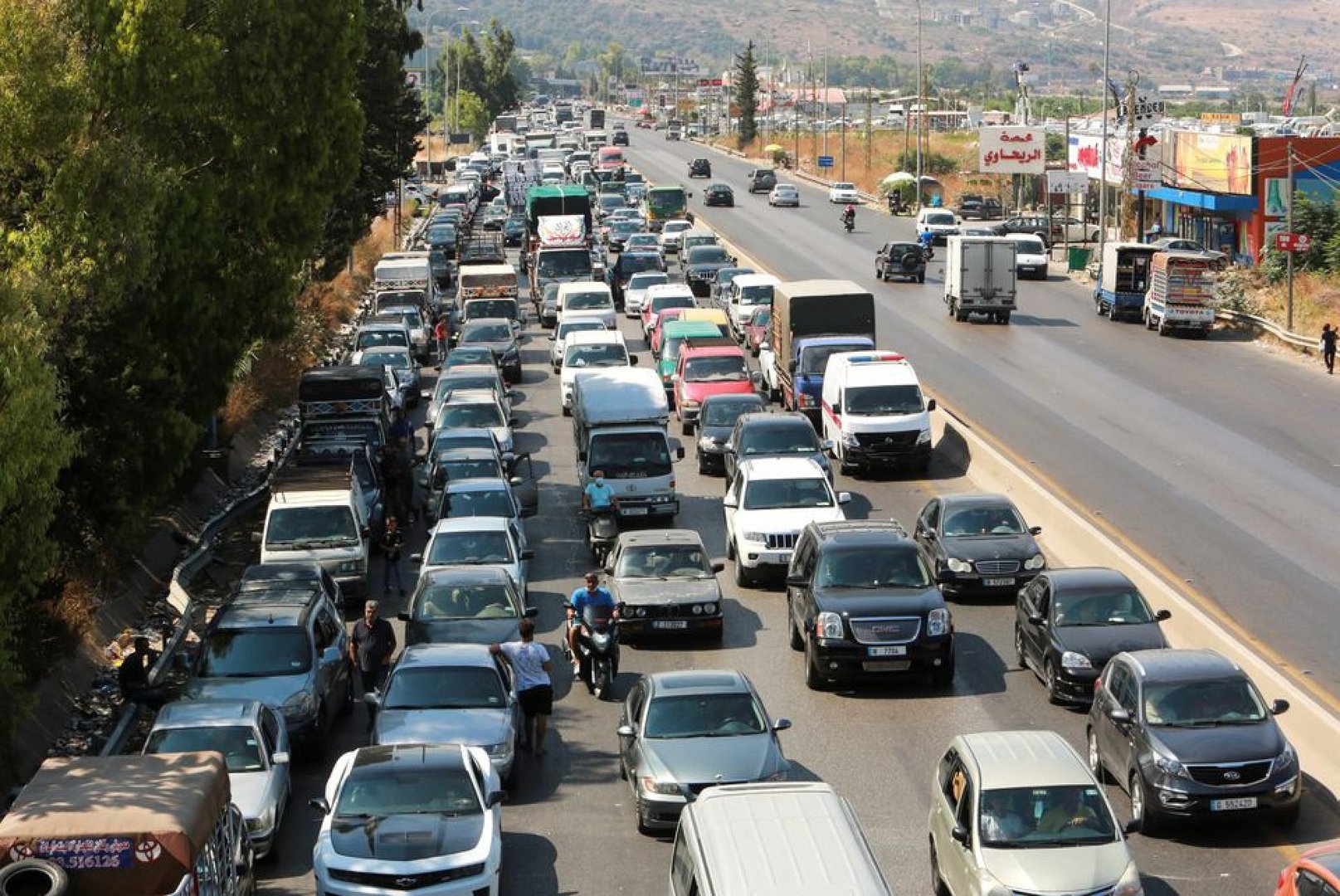Lebanese fuel prices are expected to double after the state decided on Saturday to change the exchange rate used to price petroleum products in a bid to ease crippling shortages that have brought Lebanon to a standstill.
Amounting to a partial reduction in fuel subsidies, the rise will mean more hardship in a country where poverty levels have soared during a two-year-long financial meltdown that has wiped more than 90 per cent off the value of the Lebanese pound.
The decision was made at an emergency meeting attended by the president, central bank governor and other officials over a fuel crisis that has left Lebanon in chaos, paralysing basic services and sparking daily melees as people scramble for fuel.
Though prices will rise, the decision did not fully lift the exchange rate for pricing fuel to the exchange rate at which the central bank will finance its import – a gap which the state will continue to finance, for now.
President Michel Aoun confirmed the treasury would bear the cost of the continued subsidy.
Saturday’s decision marked a compromise as official selling prices will now be based on an exchange rate of LBP 8,000 to the dollar, up from LBP 3,900, but still well below an unofficial parallel market rate closer to LBP 20,000.
Roads have been clogged across Lebanon as motorists have queued for the little gasoline left. Prices have soared on the black market. Some confrontations over gasoline have turned deadly.
The fuel oil that powers much of Lebanon has also nearly run out, leading to lengthy blackouts.
Reflecting concern about the impact of the price rise, the government decided to pay emergency social assistance to people on the public payroll equal to one month’s pay or pension.
While the government will adjust its fuel import exchange rate to LBP 8,000 to the dollar, the central bank use a rate determined by its Sayrafa platform which stood at LBP 16,500 on Friday.
Critics blame the subsidy system for encouraging smuggling to Syria. This will continue all the while fuel is sold in Lebanon below market price, said Nassib Ghobril, chief economist at Byblos Bank. “It is not going to solve the problem,” he said.






Click here to change your cookie preferences